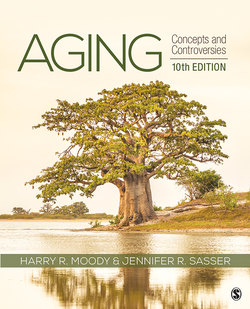Читать книгу Aging - Harry R. Moody - Страница 85
На сайте Литреса книга снята с продажи.
Global Perspective
ОглавлениеBlue Zones for Longer Life
When we think of Italy, we often think of pizza or the ancient city of Rome. But if you’re thinking about longevity, think instead about the Italian island of Sardinia. Demographers have identified its mountain slopes as a distinctive Blue Zone, a region of high longevity. In fact, the proportion of centenarians in Sardinia is more than twice as high as in the rest of Italy. That prompts a question: Why do people there live so long? Both lifestyle and genetics may play a part, but in what proportion? The isolated, mountain-dwelling Sardinians tend to be descendants of settlers dating back to the Bronze Age. Sardinians have also been known for eating a Mediterranean diet and for maintaining a traditional, family-oriented way of life. So, gerontologists wonder, what makes Sardinia such a standout as a Blue Zone for extreme longevity?
A Japanese grandmother carries her young grandson.
Manfred Rutz/Getty Images
Some answers can be found on the opposite side of the globe, in Okinawa, an island in Japan, the country with the greatest longevity. Okinawans have an average life expectancy of more than 82 years and also enjoy an old age largely free of disabilities. Rates of heart disease, cancer, and dementia are lower than among Americans. Again, we wonder, what’s the reason? Some observers point to the Japanese word ikigai, which means “purpose for living.” A traditional Okinawan diet of vegetables, tofu, and a small amount of fish is also part of the picture. Finally, Okinawans have strong social ties among family, friends, and neighbors. Gerontologists have confirmed that the powerful effect of such social networks on longevity is comparable to giving up smoking a pack of cigarettes a day.
Blue Zones around the world are natural laboratories for the study of longevity. Lessons learned from these regions can help give guidance for a healthier and happier old age closer to home.
Source: Buettner (2005).
